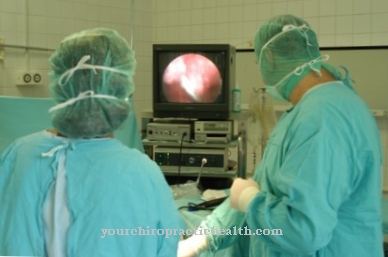The sudden occurrence of gastrointestinal diseases is reflected in various abnormalities that can be used for diagnostic purposes. A Acute abdomen is usually an indication that prompt medical action is required.
What is an Acute Abdomen?

The term acute abdomen is not an independent disease, but describes a complex of several symptoms. This is why modern medicine often speaks of a syndrome. The acute abdomen is about painful complaints that occur primarily in the area of the abdomen. The acute abdomen is therefore the "sudden or acute abdomen".
In the case of the acute abdomen, varying types of pain sensations are perceived, which under certain circumstances can be a helpful indication for a diagnosis. The acute abdomen can also mask a life-threatening disease.
causes
When it comes to an acute abdomen, different reasons have to be questioned. The causes can be found either inside or outside the abdominal area.
Specifically, organic diseases such as a stomach ulcer or ulcer, an appendicitis or gallbladder inflammation, a tumor, ulcerative colitis or inflammation of the diverticulum in the large intestine can be behind an acute abdomen.
Other diseases that contribute to an acute abdomen are diseases of the internal female genital organs, insufficient blood flow to the intestine, inflammation of the abdominal cavity, inflammation of the pancreas and myocardial infarction, as well as colic of the kidneys and biliary tree.
Obstruction of the urinary tract by stones, pregnancy outside the uterus, hernias, carcinomas or adhesions and an intestinal obstruction are typical diseases that can be associated with an acute abdomen. Pain from Crohn's disease and from inflammation of the ovaries and from tumors of the kidneys also radiate into the abdomen.
You can find your medication here
➔ Medicines for stomach ailments and painSymptoms, ailments & signs
The acute abdomen is characterized by sudden severe abdominal pain. The abdominal wall often shows a reflex defensive tension when touching the abdomen, which is expressed by a board-hard stomach. Abdominal pain is often accompanied by nausea, vomiting, bowel movements, diarrhea, flatulence and fever.
In severe cases, circulatory shock can also occur. Depending on the cause, the abdominal pain occurs in three different forms in the acute abdomen. So there is visceral pain, colic pain, and somatic pain. The visceral pain initially manifests itself as a well localizable sudden and cramp-like pain attack. In the further course this pain becomes diffuse, dull and burning.
It can then no longer be located. Visceral pain is typical of inflammation and ulceration of hollow organs. Colic is another type of pain that manifests itself in a cramp-like swelling and decongesting course. The patient gets relief by bending over. This type of pain occurs with intestinal obstruction and gallstones or urinary stones.
Somatic pain is a cutting pain that worsens with movement. At the beginning it still seems easy to locate. However, as inflammations spread in various internal organs such as the pancreas, appendix or gall bladder, the pain becomes more and more diffuse. Depending on the cause of the acute abdomen, both uncomplicated and complicated courses can occur.
Diagnosis & course
In the case of an acute abdomen, sufferers complain of sudden shooting abdominal pain, which can intensify up to abdominal cramps.
The brook usually appears firm and tense when you touch it.In addition, even in the case of an acute abdomen, the pain is either local or affects the entire abdominal area. This clarification makes a diagnosis much easier. By using the stethoscope and various tactile grips, the doctor can usually determine the pain areas in the acute abdomen directly.
A precise history and description of symptoms by the patient is also important for the diagnosis. The subsequent medical-technical examinations such as computed tomography, ultrasound and the endoscope enable exact differential diagnostics to be carried out. In the case of the acute abdomen, these diagnostic methods are completed by laboratory tests with blood, serum and excretions as well as X-rays.
Complications
An acute abdomen can cause various complications as the disease progresses. First of all, there is a risk that the dying tissue will become inflamed and cause further infections and abscesses in the abdomen. An acute abdomen in the stomach region can lead to congestion and the spread of germs into the abdomen; such as a breakthrough or an inflamed abdomen near the internal organs.
This can lead to sepsis, which in turn can lead to various complications (fever, organ failure). An acute abdomen in the gastrointestinal tract can also lead to the occlusion of blood vessels or the pinching of intestinal loops, which in extreme cases leads to the death of the surrounding tissue. Injured blood vessels can cause severe shock due to increased blood loss, which can also lead to death.
Serious complications like these can occur both without external influence and as part of a surgical procedure. Common procedures such as keyhole surgery can quickly lead to further damage to the intestinal tissue, especially if the abdomen is pronounced. There is also the risk of allergic reactions to the prescribed medication.
When should you go to the doctor?
With this disease, an urgent visit to a doctor is necessary. In most cases, however, the symptoms are not particularly characteristic of the disease, so that only a belated diagnosis can be made. However, if the symptoms persist, patients should definitely consult a doctor.
Therefore, if there is significant pain and cramps in the abdomen and a fever, treatment must be given. Constipation and diarrhea can also indicate the disease. In this case, the pain is usually sharp and often spreads to other regions of the body. In the worst case, if no treatment is given, the patient's organ can fail.
This often leads to direct death of the person concerned. If the person concerned is not sure about the symptoms, a general practitioner can be consulted first. In acute emergencies or in very severe pain, a hospital should be visited or an emergency doctor should be called.
Doctors & therapists in your area
Treatment & Therapy
Treatment of the acute abdomen should be initiated as soon as possible. In itself, the acute abdomen conceals sometimes unexpected complications. These should be recognized and excluded in good time.
Since most of the causes of the acute abdomen are inflammatory diseases of the organs, these are treated with conventional and, if necessary, also with surgical methods. If internal bleeding is involved in an acute abdomen, the stabilization of the vital signs and the stopping of the bleeding sources are of primary importance. If obstructions on organs or entrapment of intestinal passages have proven to be the cause of the acute abdomen, the blood supply to these organs must be restored immediately.
The general condition of the patient must be kept stable. Medicines can be given either orally or by infusion. In most cases of those affected, an acute abdomen means hospitalization. Once the causes have been found, permanent monitoring of the state of health and appropriate therapy for an acute abdomen can be guaranteed on site.
Outlook & forecast
The outlook and prognosis for an acute abdomen depend on two factors: the cause of the acute abdomen and the time of diagnosis. The underlying diseases of the acute abdomen are usually fatal if left untreated. Examples include appendicitis (appendicitis), intestinal obstruction, perforation of the intestine or renal colic.
If one of the causal diseases is not treated in time, the patient can suffer from the consequences for a lifetime. Another example is appendicitis: A ruptured appendix floods the abdominal cavity with inflammatory fluid, and cleaning of the abdomen is usually not completely possible. The consequences are pain and a reduction in the quality of life.
If the cause of the acute abdomen is identified in good time and treated accordingly, the prognosis is very good. As a rule, the causes can be completely eliminated with an operation and will subside completely in the further course.
Since the cause of an acute abdomen can usually be diagnosed quickly and correctly, the prognosis is very good.
You can find your medication here
➔ Medicines for stomach ailments and painprevention
The acute abdomen occurs unexpectedly. Sometimes there are painful complaints that go away on their own and it takes a while for an acute abdomen to form. Often, however, there are no signs of an acute abdomen. There is no preventive approach against the acute abdomen, as the acute abdomen develops in conjunction with an underlying disease.
You can do that yourself
In most cases, an acute abdomen requires immediate, often emergency medical treatment. Otherwise, those affected could end up in a life-threatening state of shock. Attempts at self-treatment should not be made here.
When operations are necessary, patients can only support the healing process postoperatively. The possible measures are also advisable to accompany conservative treatment. These include strict bed rest for the first few days and adequate hydration.
Depending on whether diarrhea and / or vomiting occur as symptoms, attention must also be paid to the balance of minerals. Unsweetened herbal teas and still mineral waters are recommended. It may be advisable to take additional food supplements in this context: Potassium, magnesium, zinc and selenium have anti-inflammatory effects.
Solid food should be avoided in the first few days and diet food is also advisable in the following weeks. Vegetable broths and later also chicken soups give the organism strength and compensate for the lack of fluids and minerals. Various vegetables and carbohydrates can be slowly added to the menu. Those affected should chew the food very well and take it in small amounts throughout the day.
In order to support a usually ordered antibiotic treatment, the intake of probiotics is advisable. If your general condition improves, you should start with short walks in the fresh air. These stimulate the entire gastrointestinal tract and boost the immune system.

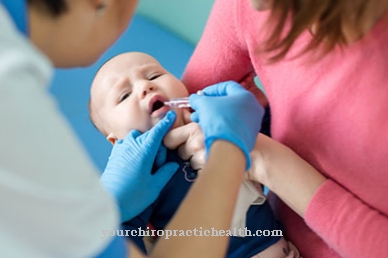

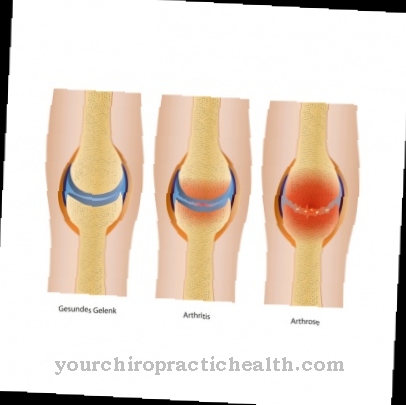
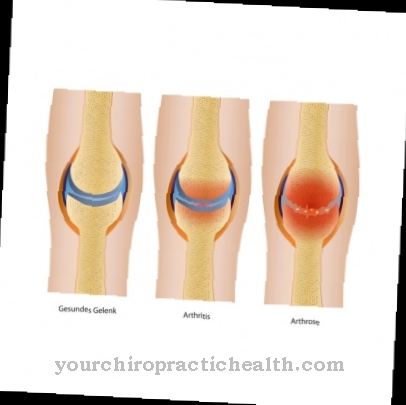







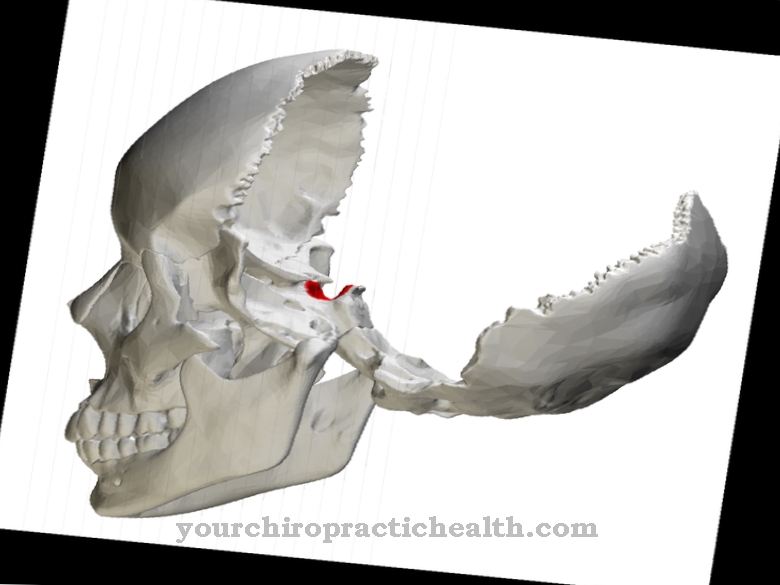
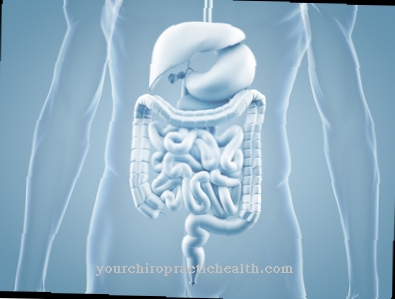

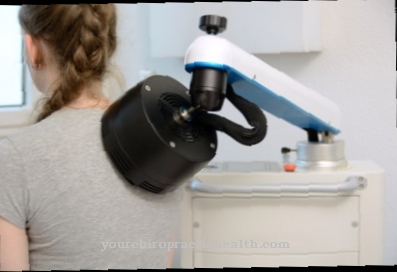
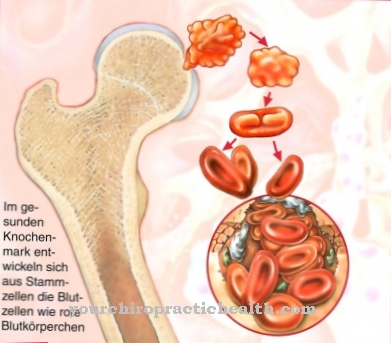


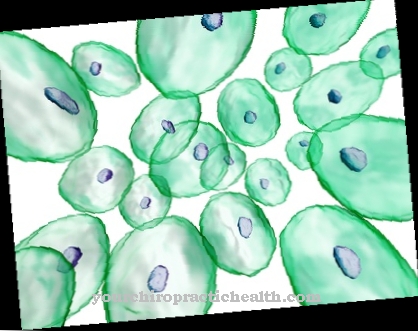

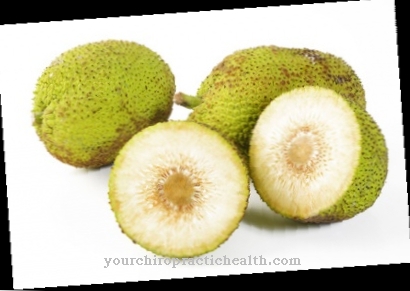
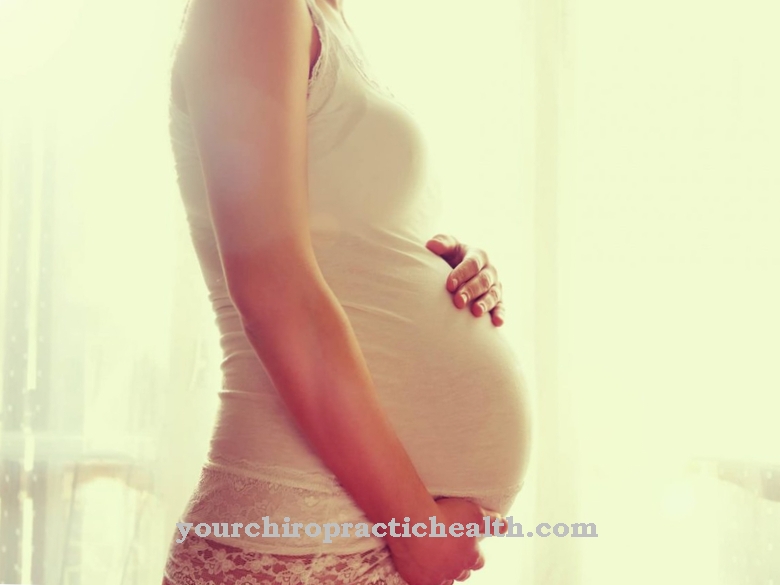
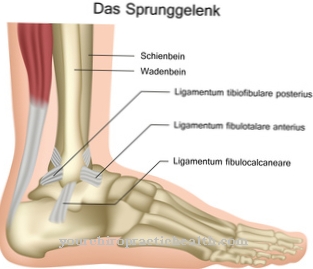

.jpg)

.jpg)
